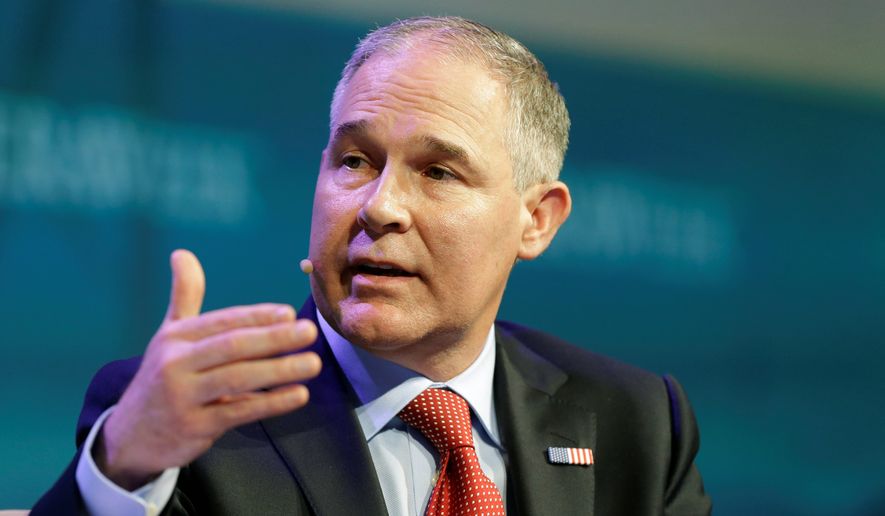OPINION:
Mustafa Ali, the chief at the Environmental Protection Agency’s environmental justice program has resigned, citing outrage and dismay over the White House’s proposed budget cuts.
It’s a good day to be an American. If President Donald Trump accomplishes nothing else, getting rid of this department will etch him in history as a success, at least in the minds of patriots, conservatives, freedom fighters and — well, the sane.
Environmental justice, for the unaware, is defined by the EPA as “the fair treatment and meaningful involvement of all people regardless of race, color, national origin, or income, with respect to the development, implementation and enforcement of environmental laws, regulations and polices.”
That’s the bureaucratic speak. Now, for the layman’s: It’s the government’s way of controlling the people by linking environmental degradations to civil rights — specifically, to the civil rights of minorities and the poor.
What does water quality have to do with skin color?
Ali, who’s stated on prior occasions he believes a core EPA function is to shield minority and poorer neighborhoods from pollution, now bemoaned that the new EPA leaders have not shown “any indication that they are focused or interested in helping those vulnerable communities,” and as such, “I feel that it’s best if I take my talents elsewhere,” Inside Climate News reported.
Good riddance, really. Environmental justice is such a travesty for the Constitution.
The way it works is this: Clean air is a human right. Wealthy people often enjoy clean air because their paychecks allow them to live in homes with decent ventilation, free of roach residue and geographically distant from carbon dioxide-releasing power plants, dirty factories, and areas of high vehicular traffic — meaning, areas of high pollution. Poor people, on the other hand, are forced by their lower incomes to jam into housing that’s roach-infested, nearby trains, transportation hubs and high-pollution buildings and facilities.
So taxpayers need to cough up money for poorer people to move to wealthier neighborhoods.
That’s the environmental justice mindset.
Again, in EPA lingo: “Environmental justice … will be achieved when everyone enjoys the same degree of protection from environmental and health hazards and equal access to the decision-making process to have a healthy environment in which to live, learn and work.”
And since the EPA has expanded its role so that it seeps into every facet of human life — from regulating the air we breathe to the land we develop to the oceans we sail to the rain puddles that collect — that means environmental justice warriors have free reign to intrude, impose and regulate on every facet of human life, under the guise of civil rights.
The problems are obvious. Dropping out of school and taking government entitlements for subsistence is a choice that naturally leads to limited housing selections — and not of the million-dollar mansion type. It’s not an equal access issue based on gender, or skin color, or religious preference — or any number of other characteristics that are protected by the Constitution. It’s not a civil rights matter.
Most recently, environmental justice arguments have been used to fight for water clean-up in Flint, Michigan, a largely black community, and to protest the Dakota Access pipeline in North Dakota, nearby a Native American reservation.
But adding a race-based element to these types of protests is just wrong. The water wasn’t contaminated in Flint because people who live there are black; the pipeline wasn’t being built to wreck Native Americans’ lands. The first was a political scandal and the second, a business decision.
Convoluting and confusing the process with unrelated arguments is slick politicking.
But that’s environmental justice for you.
And now Trump is reportedly planning on cutting the entire EPA’s budget by a quarter, starting with the shuttering of the agency’s environmental justice department. Ali, who actually built up the program at the EPA in the 1990s, isn’t happy. Neither are the leftists who’ve been able to use this program to achieve regulatory ends that oftentimes leave private property owners and businesses with the short — and costly — end of the stick.
But this is a big win for constitutionalists, for land owners, for conservatives — for freedom.




Please read our comment policy before commenting.